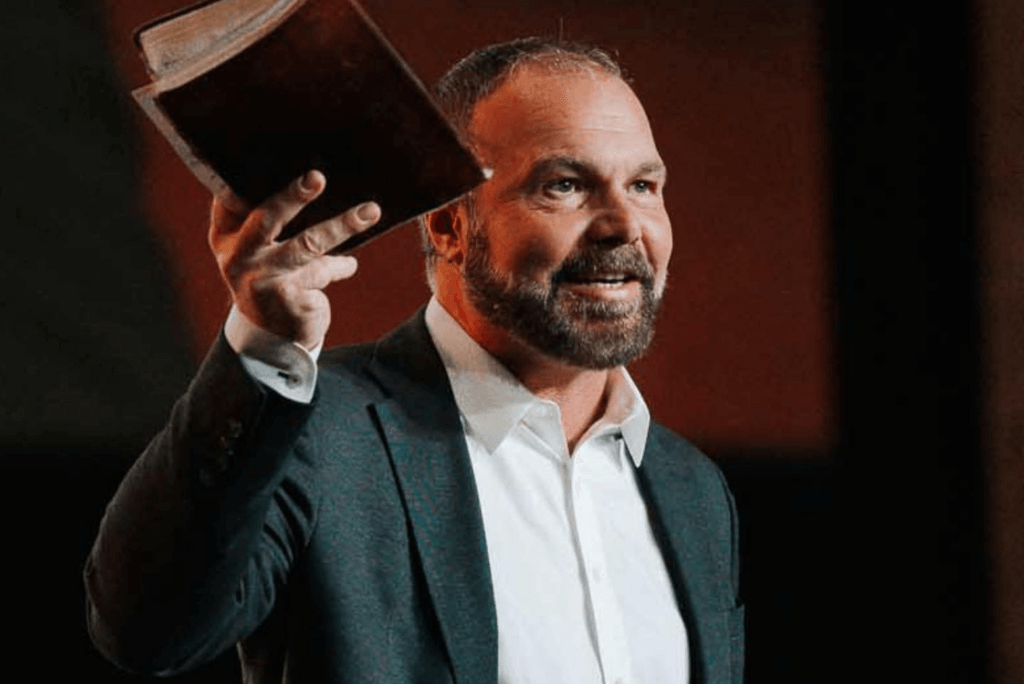The day Franklin Graham was born, he received a telegram.
“Welcome to this sin-sick world,” the Western Union message said, “and to the challenge you have to walk in your daddy’s footsteps.”
It didn’t take long for Graham, the son of famed evangelist Billy Graham, to realize that being a preacher’s kid would be both a blessing and a burden.
“I love my parents,” Graham said in a recent interview, “but there came a time where I couldn’t let my parents live my life.”
After a rebellious youth, Graham found a straight and narrow path that took him to the pulpit and the helm of his father’s Billy Graham Evangelistic Association.
But for every Franklin Graham, there’s a Friedrich Nietzsche, the atheist philosopher whose father was a Lutheran minister. For every Condoleezza Rice, there’s an Alice Cooper, the heavy-metal singing, fake-blood spouting son of a preacher man.
Beneath the stereotypes of preacher’s kids as either goody two-shoes or devilish hellions lies a tense and sometimes taxing reality, the children of clergy say. Studies show that many PK’s, as the lingo goes, struggle with issues of identity, privacy and morality. There’s even a support group, Preacher’s Kids International, dedicated to the “celebration and recovery of those who grew up in the parsonage.”
Jay Bakker, the son of televangelists Jim and Tammy Faye Bakker, said he identifies with Matthew Warren as a fellow PK and as someone who has also suffered from depression.
“It’s especially hard because his dad wrote the book `The Purpose Driven Life,’ which has this incredibly optimistic tone,” Bakker said. “My parents wrote the same kind of books, and it was like, `Things are good for everyone else. What’s wrong with me?’ I can’t imagine the pressure he must have felt.”
Preacher’s kids are often considered an extension of their parents’ ministry, Bakker said, and are expected to put on a happy face, even during tough times.
At the height of the Bakker’s success during the 1980s, they sent thousands of copies of Jay’s school photos to loyal viewers of their show “PTL.”
“You start to feel like you’re a prop,” Bakker said, “because you know that, behind the scenes, mom and dad fought on the way to church.”
Baptist pastor Corey Hodges said Matthew Warren’s death prompted him to reflect on the lives of his own three boys.
“A pastor’s family has to share him or her with church-members,” Hodges wrote in his hometown paper, The Salt Lake Tribune. When tragedy strikes, pastors are expected to counsel their congregation, even if it means missing their children’s basketball games and school plays.
“My boys masked their disappointment, but being a child of a pastor myself, I understood how much it hurt them,” Hodges wrote.
The children of non-Christian clergy struggle with similar issues, writes Israel N. Levitz in “A Practical Guide to Rabbinic Counseling.”
“It is well known,” Levitz writes, “that the higher expectations placed upon children of clergy create for them inordinate difficulties in growing up.” As Levitz notes, many rebel against those expectations, acting out to gain attention from their parents and to assert their own identity.
For Franklin Graham, his crusading father was often away from home, schoolmates tested his toughness and his behavior was scrutinized for chinks in the Graham family honor. He struggled to forge his own identity while remaining true to his father’s evangelical ideals. He didn’t always succeed: he fought, drank, smoked and got kicked out of college.
“It wasn’t that I wanted to rebel against God or my parents,” Graham said, “I just wanted to live my own life. But the more I thought I was going to have fun and show my independence, the more miserable I became.”
After a series of its own dramatic twists, Jay Bakker’s life has arrived fairly close to where it began. Like his father, he’s a pastor. The first service at his new Revolution Church in Minneapolis will be on May 12.
Bakker is married, but has doesn’t have children of his own yet. When he does start a family, he’s sure of at least one thing.
“I wouldn’t use my kids in my ministry,” he said. “I’ll probably be a stay-at-home dad.”
See an error in this article?
To contact us or to submit an article





















